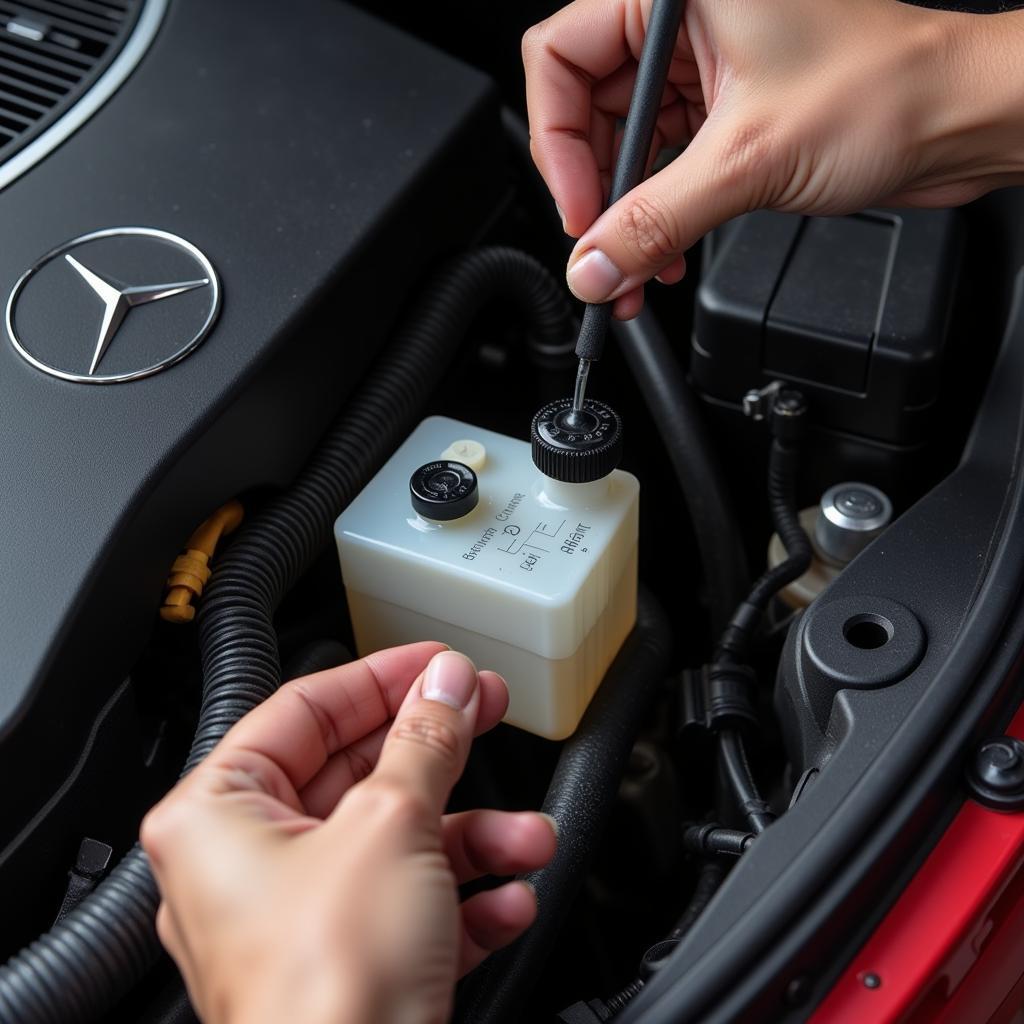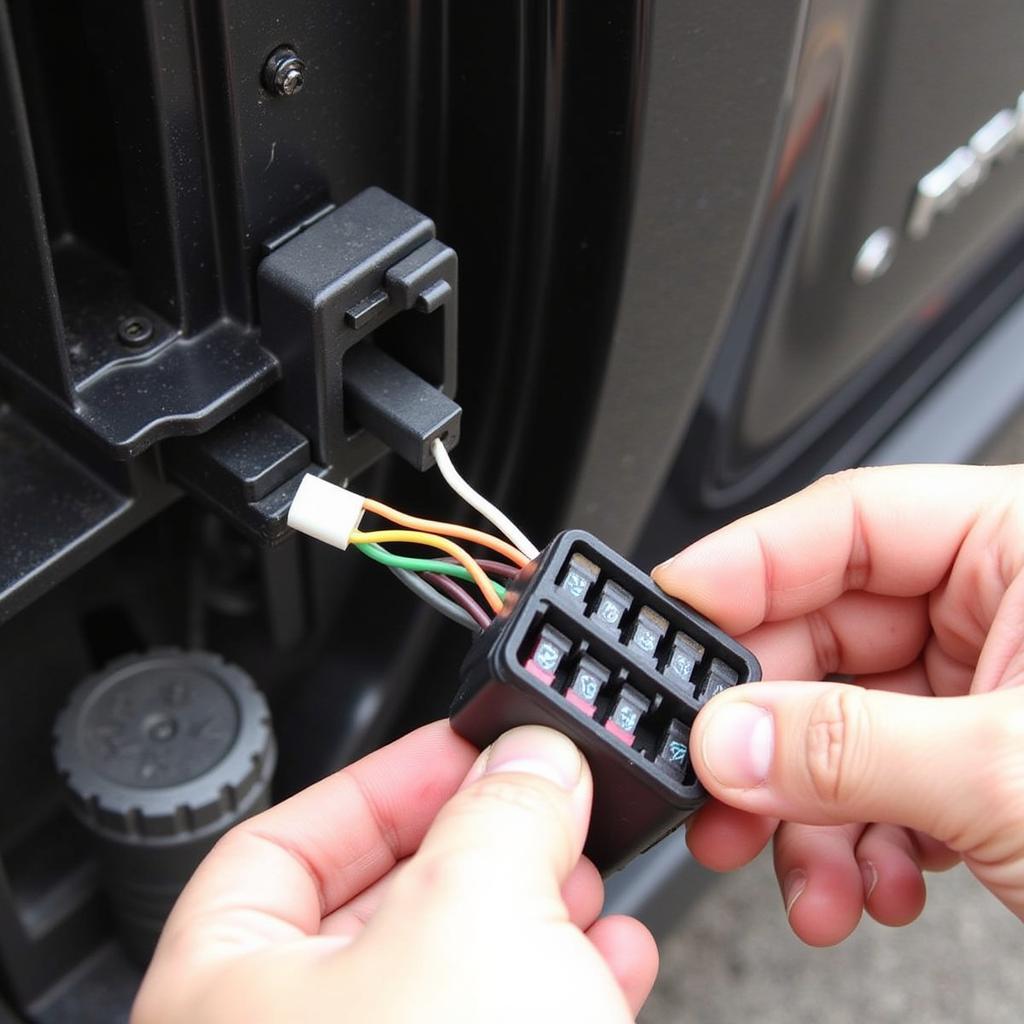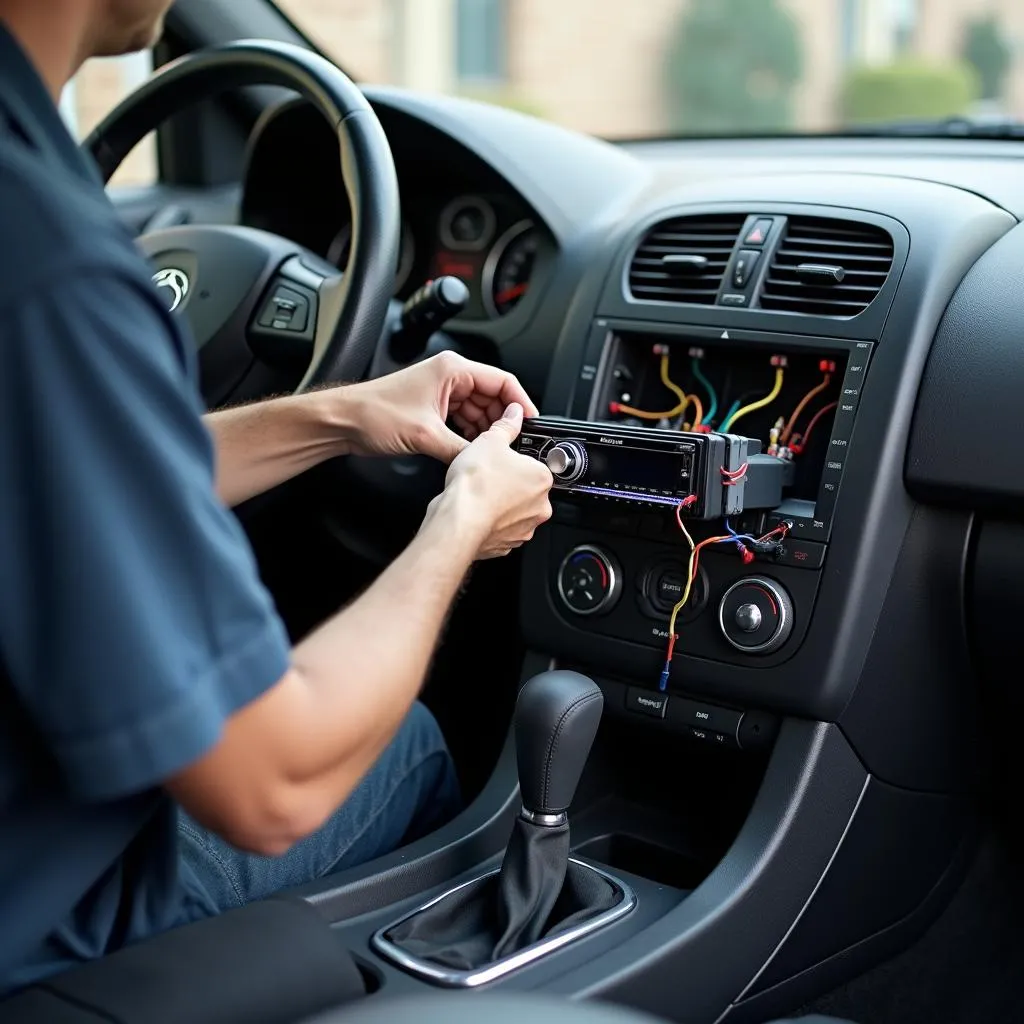That dreaded “Stop! Brake. Engine.” warning glaring from your Mercedes dashboard can be a real heart-stopper. This message, often accompanied by other warning lights and potentially impacting performance, signals a problem requiring immediate attention. Ignoring it could lead to further damage and costly repairs. This article will guide you through common causes, diagnostic steps, and potential solutions to get rid of the “Stop! Brake. Engine” warning in your Mercedes.
Understanding the “Stop! Brake. Engine” Warning
This warning isn’t as specific as some others, which can make pinpointing the cause tricky. It indicates a fault within the braking or engine systems, and sometimes even an issue with the power steering. The message essentially acts as a general alert, telling you something’s wrong and requires investigation. Don’t panic, though. With a systematic approach, you can often identify the root cause and get back on the road.
Common Causes of the Warning
The “Stop! Brake. Engine” warning can stem from various issues, ranging from simple fixes to more complex problems. Some of the most common culprits include:
- Low Brake Fluid: One of the simplest and most common causes. Check your brake fluid reservoir immediately.
- Worn Brake Pads or Rotors: Worn brakes can trigger the warning, especially if they’re critically low.
- Brake Sensor Malfunction: Faulty sensors can send incorrect signals, triggering the warning even if your brakes are fine.
- Issues with the SBC (Sensotronic Brake Control) System (for older models): This system is complex and can experience issues requiring specialized diagnostic tools.
- Engine Problems: While less frequent, engine issues like a failing alternator or low oil pressure can also trigger this warning, as they can affect braking performance.
- Power Steering Problems: In some cases, a malfunctioning power steering system, particularly low power steering fluid, can activate the warning.
 Checking Brake Fluid Level in Mercedes
Checking Brake Fluid Level in Mercedes
Diagnosing the Problem
Diagnosing the problem requires a methodical approach. Start with the simplest checks and progress to more complex ones:
- Check Brake Fluid: The first step is always to check your brake fluid level. If it’s low, top it off with the correct fluid specified in your owner’s manual. However, persistently low brake fluid indicates a leak that needs professional attention.
- Inspect Brake Pads and Rotors: Visually inspect your brake pads and rotors for wear. Thin pads or scored rotors will need replacement.
- Scan for Trouble Codes: Use an OBD-II scanner to read any stored trouble codes. These codes can provide valuable clues about the underlying problem.
- Check Battery Voltage: A weak battery can sometimes cause erratic behavior in various vehicle systems, including the braking system.
- Consult a Professional: If you can’t identify the cause, or the issue involves the SBC system or complex engine problems, it’s crucial to consult a qualified Mercedes-Benz technician.
Remote Diagnostics and Software Solutions
Modern technology allows for remote diagnosis and software updates, often offering a quicker and more convenient solution. Specialized services can remotely access your vehicle’s systems, diagnose the problem, and even install software updates to fix certain issues. This can be particularly useful for resolving software glitches within the braking or engine control units.
“Remote diagnostics is transforming the automotive repair landscape, offering faster and more convenient solutions for many issues, including brake system warnings,” says John Miller, Lead Diagnostic Technician at German Auto Solutions.
Preventing Future Warnings
Regular maintenance is key to preventing the “Stop! Brake. Engine” warning. This includes:
- Regular brake inspections and fluid changes.
- Adhering to your Mercedes-Benz’s recommended maintenance schedule.
- Addressing any warning lights promptly.
- Using high-quality brake pads and rotors.
Conclusion
The “Stop! Brake. Engine” warning in your Mercedes-Benz requires immediate attention. By following the diagnostic steps outlined in this article, you can often identify the cause and take appropriate action. Remember, if you’re unsure about any step or the problem persists, consult a qualified Mercedes-Benz technician. Don’t delay addressing this warning, as ignoring it could lead to more serious and costly problems down the road. Keeping up with regular maintenance is the best way to prevent future occurrences of the stop brake engine warning.
“Addressing warning lights promptly and following a regular maintenance schedule is crucial to preventing bigger problems and keeping your Mercedes-Benz running smoothly,” adds John Miller.


